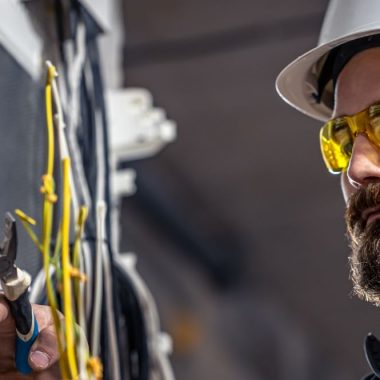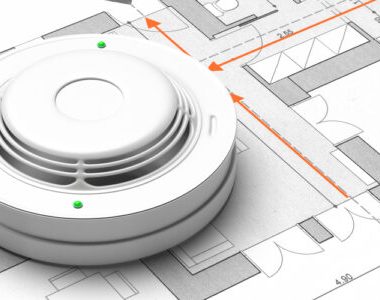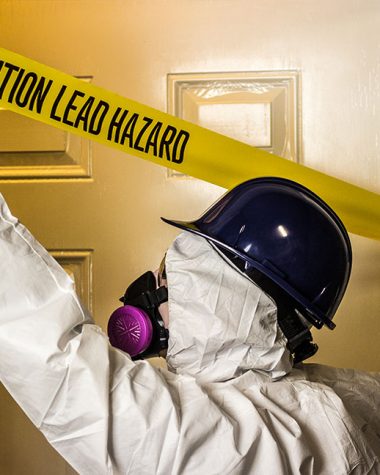Electrical Safety Precautions for Home Renovations
When it comes to home renovation, there is no doubt that electrical work must be done in order to make sure everything is functioning properly. However, many homeowners may not realize the importance of ensuring they practice electrical safety during renovation projects. Proper electric safety is essential in order to prevent serious injury or damage to a home. Here are some electrical safety precautions to take to ensure home renovations don’t become a hazard.
Have Everything Inspected
It’s important to have all of the wiring in a home inspected prior to beginning a renovation project. This will help to detect any potential hazards that could arise during the project. Any wiring that is in need of repair should be repaired immediately before starting the renovation project. It’s also a good idea to have an electrician inspect any new wiring that may be needed for the project.
Invest in GFCI Outlets
GFCI (ground-fault circuit interrupter) outlets are designed to protect the home and its inhabitants from electrical shock by quickly shutting off the power when it detects a ground-fault. When renovating a home or installing new electrical fixtures, it’s essential to ensure GFCI outlets are installed in areas likely to come into contact with water, such as in bathrooms, outdoor outlets, and kitchen outlets.
Turn Off Main Power Source
When beginning an electrical renovation, it’s imperative to make sure that the power to the area being worked on is shut off. This will help to ensure no electrical shock occurs to anyone who is performing the work. It’s also important to make sure that none of the electrical tools being used are plugged in until all power is cut off.
Protective Gear
When performing any type of electrical installation or renovation, it’s imperative to wear protective gear. This includes safety glasses, gloves, and long sleeves. It’s also important to make sure that there are no open toed shoes or shorts worn while working on electrical projects.
Practicing Awareness
It’s important to be aware of your surroundings when performing any type of electrical installation or renovation. Pay attention to any potential dangers or risks that may arise. If large pieces of equipment need to be maneuvered or a heavy fixture is being installed, it’s important to make sure the area is clear of any objects or obstructions.
Read the Manual
Prior to beginning any electrical project, it’s important to read the instructions provided with the materials being installed. This is important because following the correct instructions will ensure that the electrical work is done correctly and safely.
Utilize Grounding Methods
When dealing with an electrical renovation or installation project, it’s important to utilize grounding methods to ensure the safety of those performing the work. Utilizing methods such as using grounded outlets and GFCI outlets will help to reduce the risk of electric shock.
Use the Right Tools
When working on any type of electrical project, it’s essential to make sure the right tools are being used. Using the wrong tools can result in serious accidents or injury. Be sure to read all safety instructions before using any tools.
Only Work With Experts
If a homeowner does not feel comfortable performing any type of electrical work themselves, it’s important to let a professional electrician handle the job. Doing the work yourself is always a risk and can lead to serious injury or death.
Be Mindful of Electrical Drawings
When performing any type of electrical work, it’s important to be mindful of the electrical drawings and measurements that are provided in order to properly install components. Make sure these measurements are followed and not improvised as this could lead to shock or injury.
Install Non-Protruding Connectors
In order to ensure the safety of those working on the project, it’s important to make sure that all electrical connectors are properly installed and not protruding. Connectors that are exposed to outside elements can cause electric shock.
Follow Building Codes
It is essential to follow the building codes provided by the local municipality in order to properly and safely install electrical fixtures. It’s also important to make sure that the wiring is installed correctly in order to reduce the risk of electrical shock or fire.
Conclusion
Knowing and following electrical safety precautions while performing home renovation projects are essential in ensuring the safety of the homeowner and their family. Electrical safety is no joke and should always be taken into consideration. The above tips will help to ensure that any renovation project is a safe and successful venture.
What tools are necessary for electrical safety during home renovations?
1. Rubber Gloves: These are essential for protecting yourself from electric shocks when handling electrical components.
2. Insulated Screwdrivers: A good set of insulated screwdrivers will help prevent shock when working with exposed wiring.
3. Non-Contact Voltage Tester: This tool helps to identify live circuits without making contact and thus reduces the potential for electric shock.
4. GFCI Outlets: Ground Fault Circuit Interrupters (GFCIs) are important in any home, especially those undergoing renovations. GFCIs act as failsafes, preventing shock should a live wire ever come into contact with water.
5. Residual Current Device (RCD): An RCD is a device that trips an electrical circuit if it detects a difference between the current coming into the circuit and the current going out of the circuit. This device can be used to protect against electric shock.
6. Circuit Testers: These tools are used to test an electrical circuit for available sources of power and help to identify faulty wiring. Having a circuit tester around will allow you to safely troubleshoot a circuit before turning power back on.
What protective gear should be worn when working with electricity?
Protective gear to wear when working with electricity includes safety goggles, nonconductive rubber gloves, nonconductive shoes, and insulated tools. Additionally, long sleeves and pants help reduce the chances of contact with exposed wires or parts and should be worn when working with electricity.







